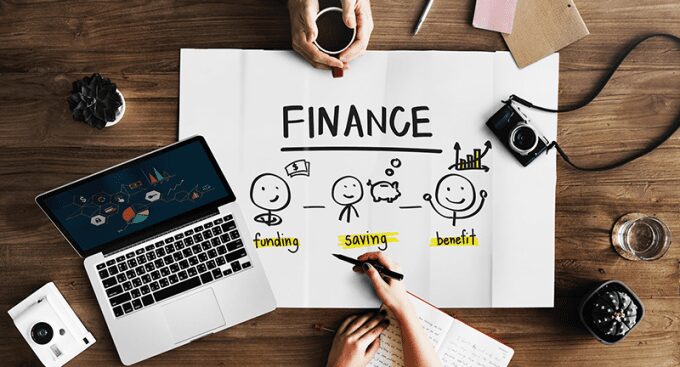There’s much that can be learned from the current pandemic and all the changes that followed. At the top of the list are things like cherishing the time you spend with family, being appreciative of the things you have, taking care of your health, and lastly, the importance of financial stability.
If there’s one lesson we can all learn from this time period, it’s that nothing in this life is certain.
Many people that were struggling financially prior to the pandemic and now they are holding on by a thread. They’re stressed about how they’re going to find another income source, pay the bills, keep a roof over their head, food on the table, and provide for the needs of their loved ones. No doubt about it, this is a historically frightening time in American history.
However, there’s nothing new about money worries. This anxiety is as old as money itself. And it can cause major problems.
Financial Stress Leads to More Problems

This stress is only heightened by the fact that no one really has any idea when things might turn around. Financial stress compounded with the fear and anxiety during the global pandemic is a recipe for disaster. When your body remains in a stressed state, it opens the doors for physical and emotional health problems.
There’s a long established connection between financial uncertainty and stress and between stress and health problems. When you’re stressed out, your body releases extra amounts of cortisol, a stress hormone, and this affects all of your body’s systems.
This and other hormones are the same ones that trigger your body’s “fight or flight” response. Basically, this is a hormonal trigger that originally began as an evolutionary mechanism that helped humans survive in a much different and more dangerous pre-historical world. We’re talking when humans had natural predators in nature and needed to risk their lives hunting to feed their families. Everytime your “fight or flight” response is triggered, your body is reacting the same way you would if a man-eating tiger were chasing you.
Simply stated, having that hormonal reaction triggered multiple times a day over financial concerns is not healthy or rational. While there are legitimate reasons to have anxiety over money – and pretty much everyone does at some point or another – having a constant flow of stress in your body is extremely unhealthy. So you have to learn to manage it, and the best way to do that is to get your financial matters back on track.
Becoming Financially Stable in 2025

Though it won’t solve all the problems during these crazy times, getting serious about financial stability can help to alleviate stress as you continue to navigate and adapt to whatever the future holds. How can you get serious about financial stability in the middle of a pandemic? How can you keep your family’s finances in check during a historically rocky economic period?
Here is some advice below:
- Assess Where You Are – You can’t begin mapping out a plan to become financially stable in 2025 if you have no idea where your starting point is. If you want to know how to stay focused on the task at hand, take stock of your financials. Pull all three credit reports together, collect all your monthly bills, and gather bank documents. How much debt do you have? What is your current credit score? Are you presently making enough to cover the bills? How much do you have tucked away for a rainy day? If you have assets, how much are they worth? For more information, click here.
- Discern Where You Want to Be – Contrary to popular belief, financial stability is not about having a ton of cash or no debt. It is about being financially content with your ability to cover your bills, having enough savings for future goals and emergencies, and essentially being in a position to afford the things you want in life. So ask yourself, what does financial stability look like for you? It might be having a credit score of 720 or higher, having a debt to income ratio of less than 30 percent, to have at least 6 months’ worth of income saved for a rainy day, or securing your family’s future with life insurance, stocks, retirement, and college savings.

- Set Financial Goals – You know where you are and you also know where you want to be. Now that you have a clear understanding of both of these factors, you’re ready to begin creating a plan to accomplish your financial goals. If you’re going to take financial stability seriously in 2025, however, you want to make sure that the goals you set are specific, measurable, attainable, and timely. For example, just saying that you’d like to have $5,000 in emergency savings is too generic. A better way of writing that goal would be to say that you’re going to set aside $420 a month to accumulate $5,000 in the next 12 months.
- Get to Work – The final step to becoming financially stable in 2025 is to put your plan in motion. You should have a list of goals you want to accomplish to reach your idea of financial stability. Now, break those goals into smaller tasks and begin taking action. To help you stay focused on your goals, it is ideal to use reminders, to-do lists, and inspirational visuals like vision boards or collages with images of things you want to accomplish. Also, asking your significant other or someone you trust to be your accountability partner can be motivating at times when you feel like giving up.

2020 has been quite the year so far. Unfortunately, it doesn’t seem as if things are going to get better (at least financially) for years to come. If you and your family are going to survive the pandemic and the economic crisis the country is facing now it is imperative that you start taking financial stability seriously. Use the above-referenced steps to create an effective plan that will provide you with peace of mind.









